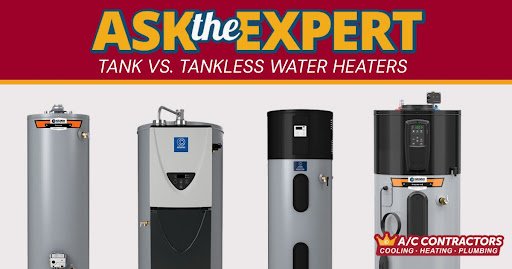Why It Might Be Time for a New HVAC System
If your home is struggling to stay cool during those long Texas summers, it might be time to invest in a new HVAC system. Upgrading not only improves comfort but can also cut down on monthly energy bills and boost your home’s air quality. Choosing the right system is a big decision, but with a little planning, you can find one that meets your needs and budget.
Let’s walk through what you need to know before making your choice.
How Much Does a New HVAC System Cost?
The price of a new HVAC system can vary quite a bit, depending on several factors. Here’s what usually affects the cost:
1. Your Home’s Construction
Bigger homes need bigger systems, which naturally cost more. But energy-efficient homes with good insulation, newer windows, and sealed doors may need smaller, less expensive units. Before upgrading, seal up any leaks or gaps that let outside air in.
2. Size of the System
Each system’s cooling and heating strength is measured in BTUs (British Thermal Units). Higher BTU units are more powerful—and more expensive. Picking the right size ensures you are not paying for more power than you need.
3. Your Location
Living in a larger metro area often means higher prices for equipment and labor. Plus, if you live in a hot climate like ours here in East Texas, you might want a top-of-the-line, energy-efficient system to keep up with year-round demand.
4. Brand Choice
Big names like Trane and Lennox offer long-lasting, high-quality options but come with a bigger price tag. Brands like Goodman, Amana and Comfort Kings still deliver solid performance at a friendlier price point. The brand you pick can greatly influence upfront and long-term costs.
5. Project Complexity
The easier the installation, the lower the cost. But if your ductwork needs major updates, or if you are changing system types altogether, the price will climb. Sticking close to your home’s current setup usually saves money.
Key Factors When Choosing a New HVAC System
Not every HVAC system fits every home. Here are a few major factors to consider when picking out the right one.
1. Type of System
There are a few different types of systems:
- Central Air Systems: These cool the whole house at once through ductwork.
- Heat Pumps: These both heat and cool efficiently, making them great for mild climates.
- Ductless Mini-Splits: Perfect for room-by-room control without ductwork.
If you are unsure which style suits your home best, one of our A/C Contractors’ Do-It-Right Guys can help you figure it out.
2. Proper Sizing
You want a system that fits your home—not too big and not too small. An oversized system can short cycle, which leads to higher energy bills and quicker breakdowns. An undersized system will run nonstop and still leave you sweating. Measuring your home’s square footage is a good start, but it’s best to have a professional size your system correctly.
3. Maintenance Needs
Every system needs regular maintenance to stay efficient and extend its lifespan. Look for a system that is known for reliability and easy upkeep. Scheduling annual checkups keeps everything running smoothly and can help catch small issues before they turn into expensive repairs.
4. Energy Efficiency
Energy-efficient systems might cost a little more upfront, but they save you money over time. Check the SEER (Seasonal Energy Efficiency Ratio) rating—the higher the number, the better. In Texas, you should aim for at least a SEER 15 rating or higher.
5. Extra Features
Today’s HVAC systems offer smart features like Wi-Fi thermostats, programmable schedules, and zone controls that let you set different temperatures for different parts of the house. These extras make life more convenient and help you save even more on energy bills.
Common Mistakes to Avoid When Buying a New HVAC System
Even with good intentions, it’s easy to make a few mistakes when shopping for a new HVAC system. Here’s what to watch out for:
1. Replacing Without Considering Repairing First
If your system is acting up, it does not always mean you need a brand-new one. Sometimes a simple repair can bring it back to life. Always have a trusted HVAC pro inspect your system before jumping into a full replacement.
2. Choosing the Wrong Size
As we mentioned earlier, sizing matters a lot. Buying the wrong size can lead to big problems down the line. Make sure your HVAC contractor performs a load calculation to pick the perfect size for your home.
3. Focusing Only on Price
We all like to save money, but the cheapest system is not always the best choice. Lower-end units often have shorter lifespans and higher energy costs. Think about long-term value—energy savings, repair costs, and reliability all matter.
Trust A/C Contractors for Your New HVAC System in Tyler and Longview, TX
At A/C Contractors, we are proud to be known as the Comfort Kings across Northeast Texas. Whether you are ready for a brand-new HVAC system or just starting to explore your options, our team is here to guide you every step of the way. We specialize in HVAC installation, maintenance, and repair—always with professional, personalized service.
Contact A/C Contractors today for a free estimate, and let’s find the perfect system to keep your home cool and comfortable for years to come.






